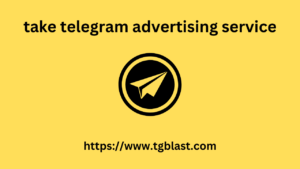Your cart is currently empty!
Capricious Google
Today we had a webinar planned about phasing out 3rd party cookies. The topic is important. Over 400 people signed up. However, we canceled the meeting because Google (I don’t know how many times) changed its plans for one of the oldest technologies on the internet. The new version is that cookies are still…
We are postponing the webinar for two weeks and invite you again. Although cookies remain, the dynamics of changes in analytical technologies take telegram advertising service are high and we still believe that the market needs to be educated about it.
The whole situation is worth commenting on, though. What comes to mind is definitely the issue of Google’s disproportionate power over the economic layer of the internet. It is our marketing ecosystem that currently allows most websites to exist, and Google, through the Chrome browser, is a powerful gatekeeper of this ecosystem.
The capriciousness of this “guardian” is, in my opinion, the best proof that it is time to reflect on his power and perhaps finally change something.
Contents:
- Google withdraws from cookie revolution
- Influencer Protection Package
- Athletes want to be influencers too
- AI will guide your career
- Premier League in the metaverse
- Video beats TV
- Balloon ride with Apple glasses
- Tired of advertising
- Škoda educates future drivers
- Twitter Super Targeting
- Shorts
- Weekly Tool
- Knowledge from the blog
Google withdraws from cookie revolution
Cookies will survive, however.
Google announced Monday that it was abandoning plans to phase out third-party cookies in its Chrome browser. The twist is surprising. The company had been working for more than four years to eliminate tracking cookies as part of its controversial Privacy Sandbox initiative.
So will marketers win and users lose? Not quite. Google has announced a new feature in Chrome that will allow users to make informed choices about their privacy while browsing the web—with the ability to change those choices at any time.
The announcement comes just three months after a previous announcement that third-party cookies would be phased out early next year.
📰 The Hacker News
📰 The Privacy Sandbox
Influencer Protection Package
Influencers are, on the one hand, a marketing superweapon, and on the other – an image minefield.
Celebrities can reach target groups with exceptional effectiveness, but sometimes their temperaments get the better of them. Their controversial statements or behaviors can affect the reputation of brands, exposing them to real financial losses.
The problem was noticed by the New York advertising agency Ogilvy. The company introduced “Influence Shield” to its offer – a service for managing the risks associated with working with celebrities and micro-celebrities.
“Influence Shield” includes verification of influencers for image risk, 24/7 social media monitoring and a dedicated team to put out image fires.
The service is also intended for influencers who fear that their instinct for self-preservation may fail them.
📰Archive
📰 Financial News
Athletes want to be influencers too
Despite the image risk associated with this form of marketing, budgets for influencing are growing. The ranks of influencers are also growing. Increasingly, their ranks are being filled by athletes who are just starting to build their recognition.
Collaborations with emerging celebrities are usually different from deals with big-name stars: they are shorter-term and focused on specific channels, particularly Instagram or TikTok.
An example of such activities are sponsorship agreements signed by brands with university athletes in the US. This form of cooperation has been possible since the so-called NIL deal – a decision of the US Supreme Court in 2021, allowing 2016 survey: get to know the results! athletes to earn money from their name, image and likeness.
Since then, companies like McDonald’s, Microsoft, PepsiCo, Berkshire Hathaway, Amazon and Unilever have decided to use the social media potential of young athletes.
The latest example of such a partnership is the deal signed by Under Armour with twins Haley and Hanna Cavinder. The Miami Hurricanes basketball players will be brand ambassadors for the next three years.
“Athletes are now acting as content creators,” says Sophie Berman, head of influencer marketing at Havas Play UK.
📰 DigiDay
📰 Harvard Business Review
AI will guide your career
LinkedIn is fighting for users with artificial intelligence. The platform has begun to use the potential of AI to provide personalized career advice.
Candidates browsing job offers will learn more about the terms of employment at a given company, the requirements they should meet, and ways to increase their chances of a positive recruitment result. For now, the function is available in English, but it will soon be expanded to other language versions.
Another interesting novelty on the platform are games and logic puzzles. The fun is demanding and stimulates the gray cells – which always increases the chance of professional success.
Innovations are supposed to be a way to database d increase user engagement and, as a result, platform turnover. LinkedIn, despite the increase in traffic, has been noticing a decline in advertising revenues for some time and is looking for ways to break the negative trend.
📰 Financial Times
Premier League in the metaverse
The path to global recognition leads through the metaverse. This is the assumption of Manchester City, which has ambitions to become a global brand and uses Fortnite to achieve this goal. The British club, as the first Premier League team, launched its own “experience” on the platform as part of the so-called creative mode (Fortnite Creative).
The game, titled “The Ladder,” is a one-on-one competition where players climb up virtual arenas, and Manchester City’s head of esports believes the creation has long-term potential and allows the brand to enter the Fortnite ecosystem in an “organic” way.
The Epic Games-owned platform is not a metaverse in the strict sense, but offers virtual spaces where users can interact, attend live events and create their own content.
